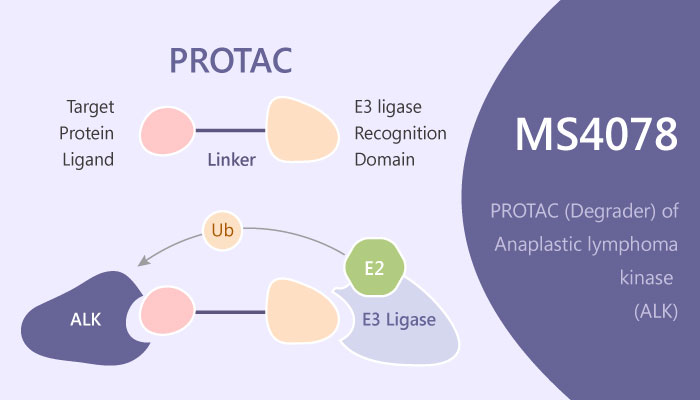Anaplastic lymphoma kinase (ALK) is a receptor tyrosine kinase. ALK belongs to the insulin receptor kinase subfamily. Nucleophosmin (NPM)-ALK is a fusion protein. NPM-ALK fusion protein expresses in the majority of anaplastic large-cell lymphomas. ALK is most closely related to leukocyte tyrosine kinase (Ltk), which is a receptor protein-tyrosine kinase. Protein kinases play a predominant regulatory role in nearly every aspect of cell biology. They regulate apoptosis, cell cycle progression, cytoskeletal rearrangement, differentiation, development, the immune response, nervous system function, and transcription. ALK is the product of a gene rearrangement in anaplastic large cell lymphoma (ALCL). Besides, ALK is an ideal target for developing PROTACs.
Recently, Chengwei Zhang, et al report the design, synthesis and biological evaluation of novel PROTACs (degraders) of ALK. This study confirmed the reversible nature of the PROTAC-mediated NPM-ALK protein degradation and signaling pathway inhibition. MS4078 is an ALK PROTAC (degrader) with a Kd of 37 nM for binding affinity to ALK. Intracellular cereblon (CRBN) target engagement of MS4078 is required for the NPM-ALK degradation. The ALK protein degradation induced by MS4078 is cereblon and proteasome dependent. MS4078 reduces the NPM-ALK protein levels with impressive DC50 (50% degradation) value of 11±2 nM in SU-DHL-1 cells.

In conclusion, MS4078 inhibits NPM-ALK protein, which would be the target of an immune response.